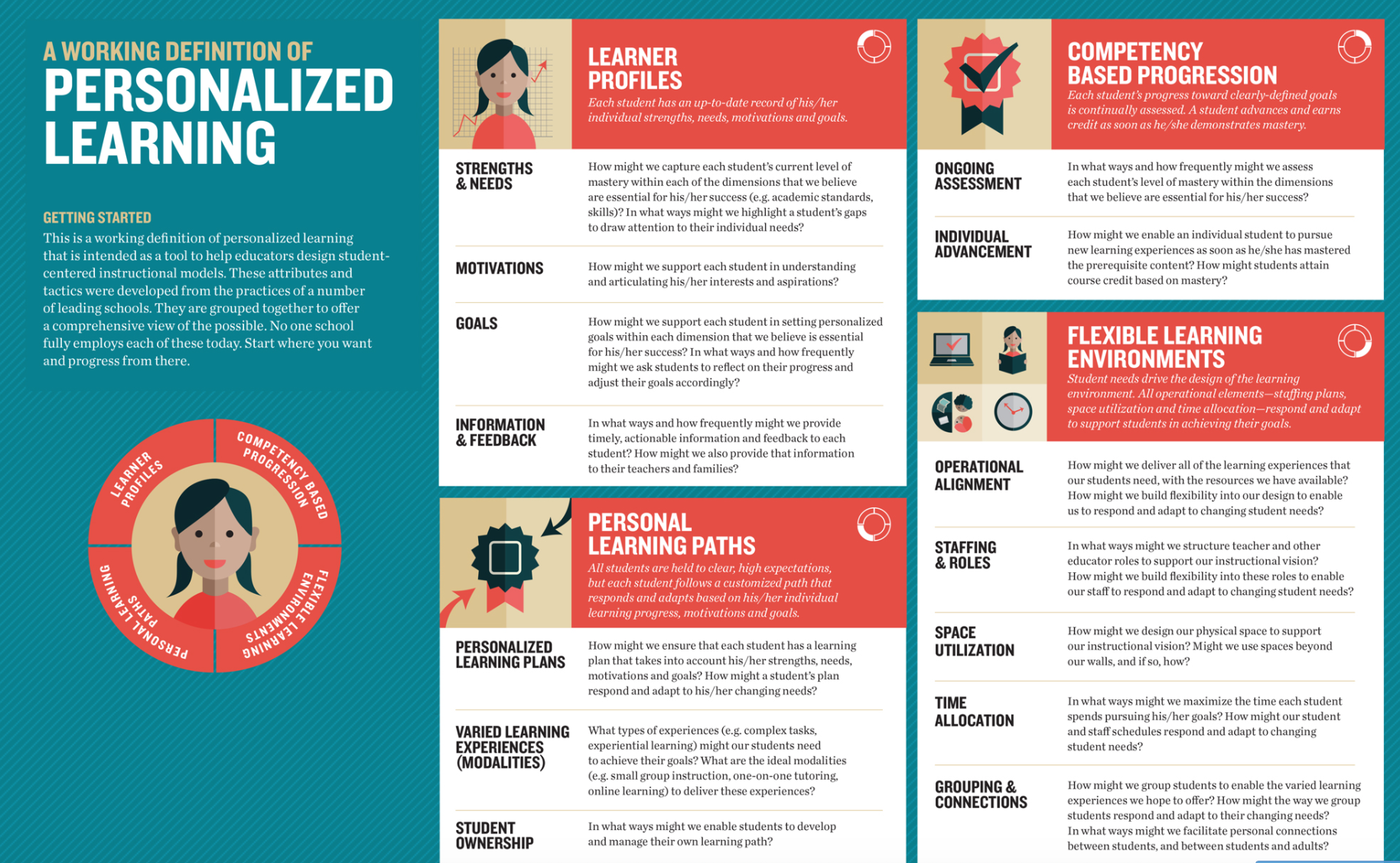Mastery Communications Week, from August 14-18, will surface resources, tools, and best practices for communicating about mastery-based learning to parents, and other community members. Several national organizations will share their thoughts, and we will hear from practitioners in their own words through a Q&A series. This one features Colleen Collins, Director of CICS West Belden, a premier K-8 urban charter school in Chicago’s Belmont-Cragin neighborhood and part of the Chicago International Charter School network and managed by Distinctive Schools.

1. How do you describe mastery-based/personalized learning at your school?
When we looked at our students, we saw that each student had unique strengths and areas of growth. For example, our data provided information that allowed us to identify students that needed additional supports to attain mastery, as well as students that were exceeding mastery in several areas. With this data, it became clear that we needed to develop an instructional model that could personalize learning and support flexible grouping and assessment—something that our teaching team does well.
In addition to academics, we know that our students have different needs as individuals. That’s why we often refer to relationship building as the heart of our personalized learning model. In building strong relationships with students, we get know them as learners and people. This allows us to empower our students, so they’ll demonstrate their learning in a way that works well for them. It also lets us help students figure out who they are as learners so they can, in turn, advocate for themselves inside and outside of the classroom.
Students are graded against our end of year expectations. At first, it was a big shift for parents and guardians to see competencies instead of letter grades, and when we started using standards-based grading in the 2011-12 school year, we had a mechanism to translate that to a letter grade. Today, we only use standards-based grading on report cards, and it’s been increasingly important to communicate clearly and effectively with parents about this shift.
In order to successfully transition to standards-based grades, it began by collaborating with our teachers and revisiting why we calculate and report grades. As a community, we decided that the purpose of grading students is so they, and their parents, understand academic progress. With our standards-based approach, we can communicate more effectively where students are academically. Competencies, such as effort, attendance, homework, and participation, are part of an additional conversation with parents. Our parents never see one grade that encompasses both academics and behavior. Overall, this has been a change for our teachers as well, and we’ve supported them by providing access to information and opportunities to work alongside an instructional coach when having parent conversations and looking at student work.
2. What resources have been helpful in communicating about your approach?
Recently, to describe personalized learning, we’ve found this infographic from New Schools Venture Fund very useful. We also have an this info sheet that very clearly lays out for parents and community members how we approach standards-based grading. Teachers often refer to this info sheet when talking about our mastery-based grading philosophy. The info sheet also has a section in Spanish since most of our parents’ first language is Spanish, and we feel that offering this information in their native language can increase understanding. My teachers and I have also used individual Northwest Evaluation Association (NWEA) data to demonstrate student growth in our parent communications, and it has become an invaluable resource for us.

3. Describe your communications strategy—what resources and channels do you use?
First and foremost, our communications strategy is centered around our united enthusiasm about our vision, as well as why we are doing this work. We make sure that everyone feels confident to communicate our shared vision, and always refer back to the “Why behind the work.”
Additionally, communications to parents is important and includes three parent-teacher conferences per year. One focuses on report cards, the second on NWEA data, and the third is in preparation for students’ end of the year assessments. Each conference begins with a 2-minute explanation of personalized learning and the origin of our school’s shift to a personalized learning model. As part of these conversations, we also listen to parents. This helps us pull them in as collaborators and lets us glean more data about their child as a learner. For example, we may ask parents questions like “when does your child come home the happiest?” This allows us to flesh out the profiles of our students, and get to know them more so we can serve them better. Once our students reach middle school, they begin to take ownership over these conferences. The goal is that they will do more of the talking than their teacher when it comes to discussing their progress.
We also hold parent events throughout the year, such as Innovation Nights, where parents visit their child’s classrooms. Teachers plan activities during Innovation Nights, which makes each classroom a little different. We’ve had teachers do interesting and creative things, such as I remember a Bingo Board. On the Bingo Board, parents checked off boxes by completing activities that students do each day, like log in to our school’s personalized learning platform, complete a math task, etc.
4. What is the role of teachers in conveying these messages to students and families?
Teachers are our main messengers when it comes to talking about personalized learning. We recognize that our amazing teachers are at different levels of readiness in talking about our work so we’ve developed resources and experiences to support them. For example, we collaboratively worked with teachers on a slide deck that captures common language and drives consistency in how we talk to parents, and the aforementioned this info sheet is a useful tool as well.
However, we think it is important for each teacher to drive conversations with parents in his or her own words. So the deck and the info sheet are starting points. From there, instructional coaches support teachers to customize their communications approach, and teachers act as the main drivers of parent and student conversations.
5. How do you equip teachers to talk about mastery?
We provide teachers with training and resources to talk about mastery without scripting them. We support them to own their communications approach, provide resources to help them develop language that works for them, and give them room to practice and get familiar with the systems and language so that they can talk about our work consistently and broadly.